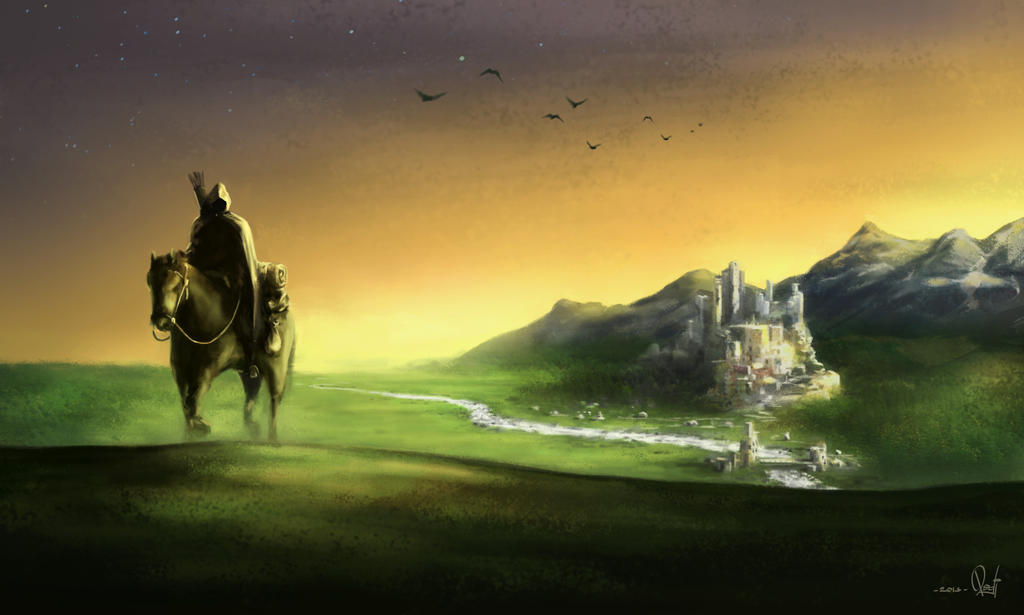
Letters to Monarchs
When the Prophet (r) expressed his desire to send letters to the kings of the Arabs and
non-Arabs, the companions advised him to affix his seal on the letter for the kings usually
refuse to entertain the unsealed ones. The Prophet (r) accordingly stamped his letters to
them with a silver seal on which was engraved:
“Muhammed the Messenger of Allah.” (Al-Bukhaari, Kitab-ul-Jihad and Shamail AtTirmidhi).
LETTERS OF THE Prophet (r) to Monarchs

Of the many letters sent by the Prophet (r), those written to Heraclius (the Byzantine
Emperor), Chosroes II (the Emperor of Iran), Negus (the king of Abyssinia) and Muqauqis
(the ruler of Egypt) are the most important.
The Prophet (r) wrote in this letter to Heraclius:
I begin with the name of Allah, the beneficient, the Merciful. This letter is from Muhammed, the slave and Messenger of God, to Heraclius, the great King of Rome. Blessed are those who follow the guidance.
Verily I call you to Islam. Embrace Islam that you may find peace, and God will give you a double reward. If you reject then on you shall rest the sin of your subjects and followers.
O people of the Book come to that, which is common between you and us; that we will serve none but Allah, nor associate aught with him, nor take others for lords besides God.
But if you turn away, then say: bear witness that we are Muslims.
The letter sent to the Chosroes II read:
I begin with the name of Allah, the beneficient, the Merciful. From Muhammed, the Messenger of God (r), to Kisra, the great King of Persia.
Peace be upon him who follows the guidance, believes in Allah and His Prophet (r), bears witness that there is no God but Allah and that I am the Prophet of Allah for the entire humanity so that every man alive is warned of the awe of God. Embrace Islam that you may find peace; otherwise on you shall rest the sin of the Magis. (Al-Tabari, Vol. III, p. 90)
In the letter addressed to Negus, the Prophet (r) had written:
“I begin with the name of Allah, the Beneficient, the Merciful.
From Muhammed, the Messenger of Allah (r), to Negus, the great King of Abyssinia.
Peace be upon him who follows the guidance.
Glory be to Allah besides whom there is no God, the Sovereign, the Holy, the Peace, the
Faithful, the Protector. I bear witness that Jesus, the son of Mary, is the Spirit of God, and
His Word that He cast unto Mary, the Virgin, the good, the pure, so that she conceived
Jesus. God created him from His Spirit and His breathing as He created Adam by His hand
and His breathing.
I call you to God, the Unique, without any associate, and to His obedience and to follow me and to believe in that, which came to me, for I am the Messenger of God. I invite you and your men to the Great Lord. I have accomplished my task and my admonitions, so receive my advice. peace be upon him who follows the Guidance. (Tabaqat Ibn
S’ad, Vol. III, p. 15).
The Letter sent to Muqauqis, the chief of the Copts of Egypt, read:
I begin with the name of Allah, the Beneficent, the Merciful. From Muhammed, the Messenger of Allah, to Muqauqis, the Chief of the Coptic.
Peace be upon him who follows the guidance.
I call you to Islam that you may find peace, and God will give you a double reward. If you
reject, then on you shall be the sin of your countrymen.
O people of the Book, come to that which is common between you and us; that we will serve none but Allah, nor associate aught with him, nor take others for lords besides God. But if you turn away, then say: bear witness that we are Muslims.”
(Mawahib Landuniyah, Vol. III. Pp. 247-48)
WHO WERE THESE KINGS ?
We cannot appreciate the solemnity and significance of the memorable step taken by the Prophet (r) unless we realize who Heraclius, Chosroes, Negus and Muqauqis were, the extent of their dominion, prestige, splendor and might in the world during the seventh century.
Anyone who is not well-aware with the political history at the time might have taken them as local rulers for so many of them are found in every country.
But one who is mindful of the political state of the world in the seventh century and the power and splendor of the ambitious monarchs who had divided the world among themselves, would but arrive at one conclusion. That only a man sent by God on a mission could dare summon the imperious autocrats to put their trust in his Prophethood.
Such a man should be devoid of the least doubt in the success of his sacred task, or of a speck of fear in his heart. He had to possess such a glowing conviction in the glory and majesty of God that the proudest sovereign was to him not any more than an illusory puppet going through the motions of regality. For all these reasons, it would be worthwhile to give a brief sketch of the monarchs to whom the Prophet (r) had sent his epistle.
MONARCH HERACLIUS (610-641)
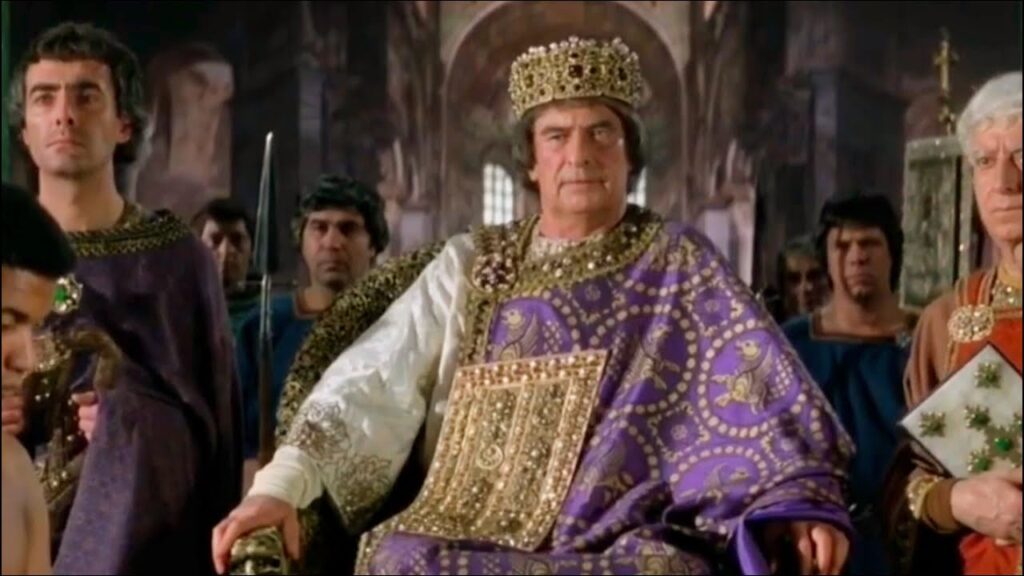
The Byzantine empire, then calling itself “New Rome”, had along with its Iranian counterpart, kept a tight hand over the civilized world for several hundred years. Its emperors ruled
in direct succession to the Roman Emperors over vast and populous lands in Europe, Asia
and Africa. The empire was enormously rich while its phenomenally good armies and navies
had compiled a successful military record.
Coming from a Greek family, Heraclius was born in Cappadocia but was brought up in Carthage where his father was the Exarch of Africa. In his early years he never made any illusion to his fire of genius, avarice for power or qualities of leadership.
When Phocus killed the tyrant Emperor Maurice, in 602 A.D., and usurped the throne, the
Chosroes of Persia declared himself the avenger of his former benefactor. The Byzantine
Empire absorbed heavy losses as the Iranians reduced Antioch, Damascus, and Jerusalem
and took away the True Cross in triumph.
Soon afterwards they entered Alexandria, and Egypt too was gone. It seemed to be the end of the great Roman Empire in the East. It was then that the secret emissaries of the Senate prevailed upon the Exarch of Africa to send his son from Carthage to Constantinople.
Heraclius was crowned in 610 A.D., when the Empire, afflicted by famine and pestilence, was incapable of resistance and hopeless of relief against the enemy laying a siege to the capital.
Heraclius spent the first few years of his reign beseeching the clemency of Persians and
suing out peace, but in 621 A.D. he was suddenly awakened from his sloth. This was the year
in which the prediction of Roman Victory, something most “distant of its accomplishment”,
was made by the Qur’an.
In a sudden, displaying the courage of a hero, Heraclius exchanged his purple for the simple garb of a penitent and warrior and decided to become the deliverer of Christendom and restorer of the greatness of the Eastern Empire.
He began a great counter offensive and defeating the Persians of their own territory, brought his victorious arms to the capital of Iranian Empire. Amidst the triumph of his succeeding campaigns, Heraclius avenged the honor of Byzantium, crushed the arms as well as the glory of Iranian Empire until it seemed to be nearing its end.
Heraclius returned to Constantinople in 625 A.D. and then, in 629, marched in triumph to
Jerusalem for restoring the True Cross to the holy sepulcher. The people went forth to meet
the victor, with tears and thunderous applauses, spreading carpets and spraying aromatic
herbs on his path. The glorious event was celebrated with the tumult of public joy.
While the emperor triumphed at Jerusalem, he was conveyed the letter of the Messenger of Allah (r) inviting him to embrace Islam. By that time, Heraclius seemed to have exhausted himself.
He became the “slave of sloth, of pleasure, or of superstition, the careless and impotent
spectator of the public calamities,” as he had been in the beginning, until the new movement of Islam exploded out of Arabia and took away the very provinces Heraclius had recaptured from the Persians.
The boundaries of the Byzantine Empire again shrunk to the Asia Minor and the coastal regions of the Mediterranean Sea in Europe.
The work of Heraclius was undone, but he was decidedly one of the most extraordinary and inconsistent Emperors who assumed the charge of the Byzantine Empire. Great were his exploits and adventurous campaigns and he ruled the greatest empire of the day.
In the magnitude of his dominions, wealth and military prowess, he could be compared only with Chosroes II, the Emperor of Persia. Heraclius died at Constantinople in 641 A.D. and was
buried there.
MONARCH CHOSROES II
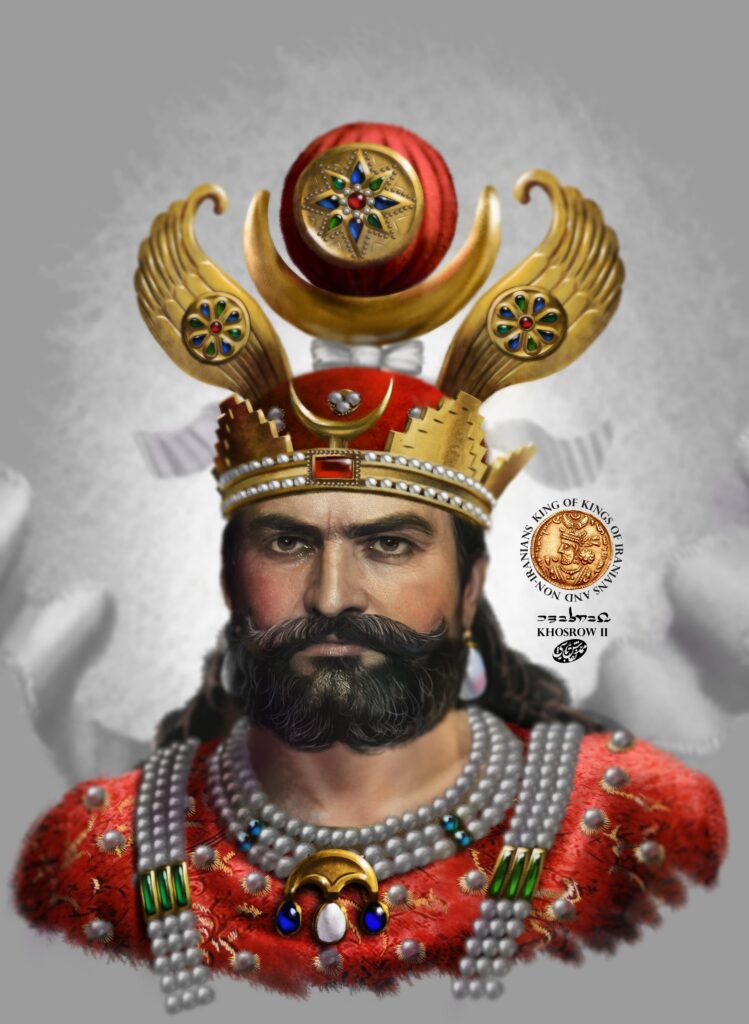
Known as Khusro Parvez to the Arabs, he was the fourth son of Hormouz and the grandson of Chosroes I, Anushirvan the Just. The murder of Hormouz in 590 A.D. was succeeded by enthronement of Chosroes II, but after suffering a defeat at the hands of a rebel chief, Bahram, he had to solicit the protection of Maurice, the Byzantine Emperor.
The fugitive prince was helped by Maurice with a powerful army which restored his kingdom after two fierce battles on the banks of Zab and the confines of Mada’in. While the majesty of the Persian Emperor was revived, Phocas, who promoted himself to the vacant purple, killed his adopted father, Maurice.
Chosroes II decided to avenge the death of Maurice and invaded the Byzantine dominions in 604 A.D. Chosroes II continued to extend his triumphant march to Constantinople, even after the death of Phocas, rolling in the dust all the Byzantine provinces, Syria , Egypt and Asia Minor, in the rapid tide of his success.
By 616 A.D. Chosroes II had reached the summit of his victorious campaign for he seemed
to announce the approaching dissolution of the Byzantine Empire. But his insolent demands
at last animated the dormant valor of Heraclius who put the Iranians to rout and penetrated into the heart of Persia.
Chosroes II, had to ultimately leave his country and seek refuge in some far off place and thus the battle between the two empires came to an end in 628 A.D. Chosroes II was, according to the unanimous verdict of historians, the greatest Emperor of Iran. In the East, his writ ran up to the northwestern parts of India.
(Iran ba ‘Ahad Sasanian, p. 602)
During his rule, the glory and magnificence of royal court had surpassed the limits of fancy. Iran was, during this period, more than a match to any country of the world in its ostentatious living, luxury of its nobles and the splendid workmanship of its artisans.
Writing about the attainments of Chosroes II, the noted Arab historian At-Tabari says:
“Made of a sterner stuff, he was the most prudent far-sighted Emperor of Persia. Deeds of valor, exploits of victory, abundance of wealth, stroke of luck and favorable circumstances had so bunched up during his reign as never before. It was for these reasons that he came to be known as Pervez which meant victorious in Arabic.”
In the arts of civilization and ever-new innovations of edibles and drink, Iran was without
any parallel. (Tarikh Tabri, Vol. II, (Egypt), p. 995) In the manufacture of perfumes it had
attained perfection. The people had developed a taste for savory preparation, luscious liquors and the finest perfumes.
Love of music had grown into craze, which had stipulated its development in the reign of Chosroes II. He was so fond of amassing wealth and artifacts that when his treasures was transferred from an old building to a new one at Ctesiphon in 607-8 A.D., it consisted of 468 million Mithqals of Gold valued at 375 million gold sovereigns. In the thirteenth year of his reign, Chosroes II had 830 million Mithqals of gold in his exchequer.
The reign of Chosroes II lasted up to 37 years, after which his son Sherveh took over.
MONARCH MUQAUQIS
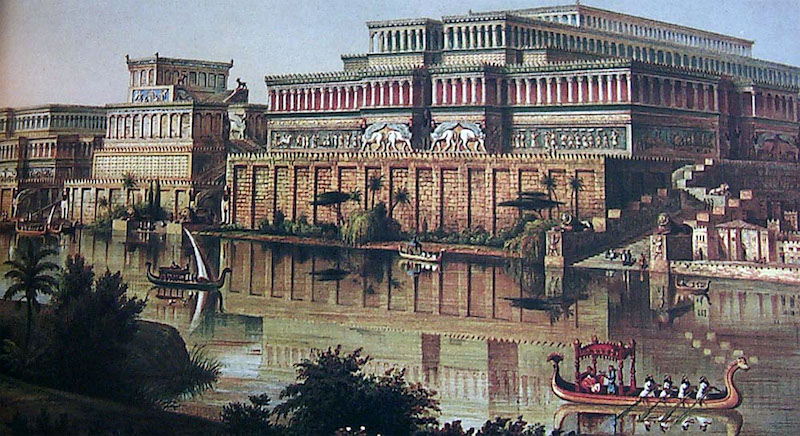
He was the Prefect as well as Patriarch of Alexandria acting as the Governor of Egypt on
behalf of the Byzantine Emperor. The Arab historians normally mentioned him by his title
‘Muqauqis’ but they hotly dispute his personal identity. Abu Salih who wrote in the sixth
century after Hijrah (12 century A.D.) gives his name as Juraid b. Mina al Muqauqis (which is
corruption of George, son of Mina). Ibn Khaldun says that the then Muqauqis was a Copt
while al-Maqrizi asserts that he was a Roman.
When the Persians conquered Egypt in 616 A.D., the Byzantine Prefect and patriarch was
John the Almoner who fled from Egypt to Cyprus and died there. George was appointed in
his place as the Archbishop of Merkite church who remained in office from 621 A.D. till his
death in 630 A.D. Known to the Arab historians as Juraij, they give the year of his appointment as 621 A.D. Alfred j. Butler is of the opinion that practically seized all the Arab historians about a person by the title of Muqauqis, appointed by the Byzantine Emperor Herculius after the recovery of Egypt from the Persians, who was both its Patriarch and Governor.
They have, therefore, identified George as Muqauqis. But he also says that Muqauqis was
only a title of the Patriarch since it was applied to the governor in the early Coptic manuscripts. It is also possible that some Coptic Patriarch might have assumed the ecclesiastical and political powers after the conquest of Egypt by the Persians. However, as the treaty of peace between the Romans and the Persians was executed in the year 628 A.D.,
the letter of the Prophet (r) was more probably received by the Patriarch of Egypt when he was more or less independent. This is why, it appears, that the Prophet (r) addressed him as the chief of the Copts.
Egypt was the most fertile dominion of the Byzantine Empire, far exceeding other provinces in population as well as in resources. It was also the granary of the Byzantine capital.
When ‘Amr b. al-‘as entered Egypt at the head of the conquering Arab force, fourteen years after the Prophet (r) had sent his letter to Muqauqis, he wrote to Caliph ‘Umar b. alKhattab about that land:
“The country is exceedingly fertile and green. Its length covers a journey of one month and its breadth is of about ten days.”
A census of Egypt taken by ‘Amr b. al-As in 20 A.H./640 A.D. to find out the number of persons on whom jizya could be levied, showed that the population exceeded six million, one hundred thousand of which being Romans. ‘Amr b. Al- As also wrote to the Caliph:
“I have taken a city of which I can but say that it contains 4,000 palaces, 4,000 baths, 40, 000 Jews and 400 theatres for the entertainment of the nobles.” (Husn-ul-MUhudra by Suyuti)
MONARCH NEGUS
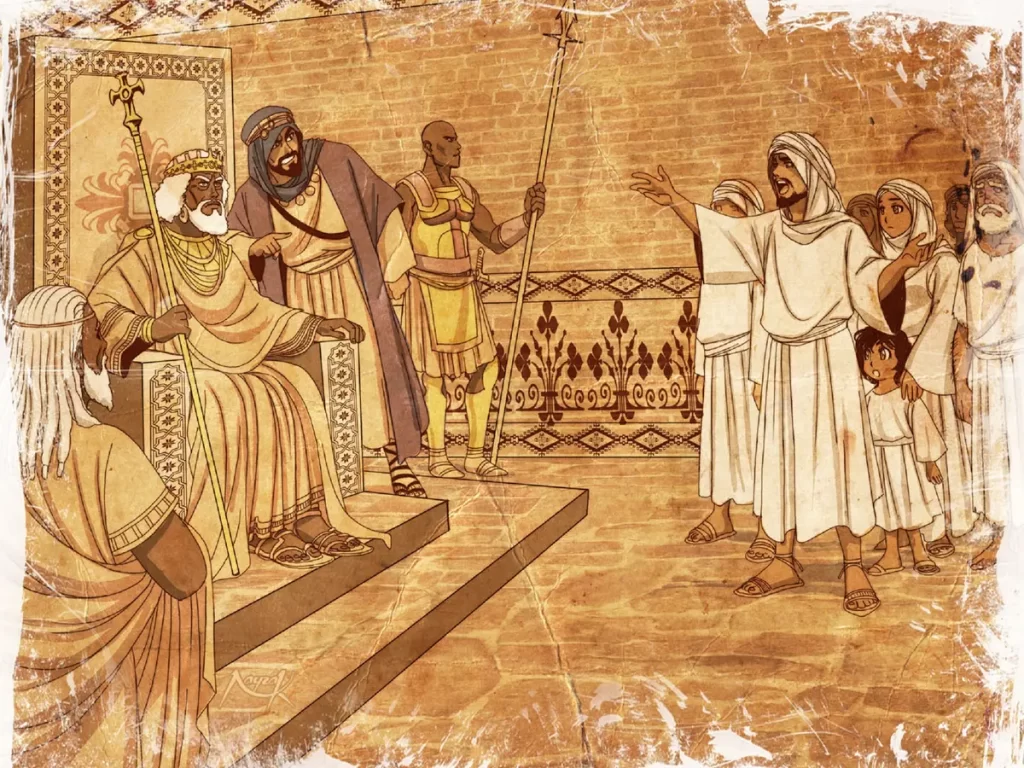
Ethiopia is an ancient country in the eastern part of Africa lying along the coast of the Red Sea which came to be known as Abyssinia since the distant past. Its boundaries, as they existed in the seventh century, are not easy to define now. The kingdom of Abyssinia was also one of the oldest in the world. The Jewish sources denote that the queen Sheba belonged to Abyssinia and her progeny by Solomon ever ruled the country.
The Jews started migrating to the country from the sixth century B.C. after the destruction of Solomon’s Temple but Christianity became the dominant faith of the people by the fourth century.
When the Jewish monarch of Yemen persecuted the Christians of his land, Emperor Justin I wrote to the Negus of Abyssinia to help the Christians. Negus of Abyssinia is said to have complied by sending an army which captured Yemen in 525 A.D. and retained the hold of Abyssinia over it for about fifty years.
Abraha was the viceroy of Abyssinian King in Yemen who led an army to destroy the House
of God in Makkah whence came off the memorable event of ‘Am al-fil or the year of the elephant. The capital of Abyssinia was at Axum. Being a sovereign state, it was neither dependent nor a tributary to any alien power.
Of course, as a Christian country, it had friendly relations with Byzantium which was then regarded as the protector of Christendom. The Byzantine Emperor respected the independence of Abyssinia for Justinian had sent his Ambassador by the name of Julian, to the count of Axum.
De lacy O’Leary writes in the “Arabia before Muhammed” that “from 522 to the rise of Islam, the Abyssinians controlled the southern end of the Red Sea including trade with Africa, perhaps that with India as well. The official title of the King of Abyssinia was Nagusa Nagasht or King of Kings of Ethiopia. But, the name of the King to whom the Prophet sent his letter inviting him to embrace Islam has been variously mentioned in different sources.
However, we have before us two kings of Abyssinia. One of these is the king during whose reign the Muslim migrated from Makkah to Abyssinia under the leadership J’afar b. Abi Talib, in the fifth year of the Prophet messengership of Muhammed (r). But it is highly improbable that the Prophet (r) wrote any letter to Negus at that time.
The circumstances prevailing with the Prophet (r) at Makkah then were unfavorable for addressing such a letter to any ruler. And in any case, it was neither an appropriate time for inviting any noble or king from a foreign land to accept Islam nor did he send any such letter, according to the Traditions, to any foreign dignitary. All that the Traditions suggest is that the Prophet (r) had requested the then Negus to afford protection to the Muslims in his country for they were being severely persecuted by the Quraysh.
Similarly, the writings of Ibn Hisham and others imply that the Negus had admitted the truth of divine revelation and accepted that Jesus was a Prophet (r) and word of God cast by Him unto Mary, the mother of Jesus.
In so far as the Negus to whom the Prophet (r) had sent his letter is concerned, he was, according to Ibn Kathir, the King who succeeded the Negus who had been given asylum to J’afar b. Abi Talib. Ibn Kathir maintains that the letter inviting him to accept Islam was written to the Negus before the conquest of Makkah along with other monarchs.
‘Ibn Kathir’s view appears to be preferable for this second Negus accepted Islam, and of whose death the Prophet (r) informed the Muslims and prayed for his salvation. Waqidi and some other biographers of the Prophet (r) have stated that the Prophet (r) had prayed for the Negus after a return from Tabuk in Rajab 09, A.H.
(Saheeh Muslim, Vol. V, p. 166)
The consequential circumstances of the event suggest that Waqidi is correct in holding this view and in its dating.
REACTION OF THE MONARCHS
Heraclius, Negus and Muqauqis received the letter from the Prophet (r) with all due respect that each gave a courteous reply. Negus and Muqauqis showed the highest regard to the envoys.
Chosroes II was indignant, he tore the letter into pieces, saying,
“My slave dares to write me thus!” When his reply was conveyed to the Prophet (r),
he said, “even so shall God shatter his kingdom to pieces.” (At-Tabari, Vol. III, pp. 90-91)
Choroes II wrote to Badhan, who was his governor in Yemen, to get the Prophet sent to
him in Ctesiphon. Badhan deputed Babwayh to tell the Prophet (r) what Choroes II had
written to him and that he had come to take him to the King. But when Babwayh came to
Medinah, the Prophet (r) told him. “God has given Sherveh power his father and he has killed Choroes II.”
HERACLIUS AND ABU SUFYAN
Heraclius decided to satisfy himself about the contents of the Prophet’s (r) letter. He ordered to search for a man from Arabia who could tell him about the Prophet (r). Abu Sufyan happened to be there on a business trip and so he was summoned before him.
The questions raised by Heraclius on this occasion showed that he had a deep insight into the scriptures and the teachings of the Prophet (r) of yore and he knew how and when God
sends them and the way they are usually treated by their people. Abu Sufyan, too, acted like
a true Arab for he considered it below his dignity to tell the Emperor anything but truth. The conversation between Heraclius and Abu Sufyan is significant enough to be quoted here at full length.
Heraclius: Tell me about his lineage.
Abu Sufyan: He comes of the best lineage.
Heraclius: Did anybody before him make the claim he does?
Abu Sufyan: No.
Heraclius: Had there been any king in his family?
Abu Sufyan: No.
Heraclius: Who have followed him? Are they the poor and the weak or the nobles?
Abu Sufyan: They are all poor and weak.
Heraclius: Are his followers increasing or deserting him?
Abu Sufyan: Their numbers are growing.
Heraclius: Do those who enter his religion despise and leave him?
Abu Sufyan: No.
Heraclius: Did you find him telling lies before he made the claim?
Abu Sufyan: No.
Heraclius: Did he ever break the word given by him?
Abu Sufyan: Not as yet, but we will see what he does in the future.
Heraclius: Did you ever fight against him?
Abu Sufyan: Yes.
Heraclius: What was the result?
Abu Sufyan: The fortunes have varied, sometimes in our favor, sometimes in his.
Heraclius: What is it that he teaches?
Abu Sufyan: He asks to worship One God, and not associate ought with Him. To offer
prayers, be virtuous to speak the truth, and be kind to the kinsmen.
Heraclius then asked the interpreter to tell Abu Sufyan: “I asked you about his lineage and you replied that it was the noblest among you. Prophets always come from the best lineage.
I asked you if any man in his family had made a similar claim and your reply was ‘No.’ If anybody had made a claim to Prophethood in his family, I would have thought that he was imitating him. Then I asked if there had been a king in his family, and you said ‘No.’ Had it been so, I would have surmised that he was trying to recover his lost kingdom.
And I inquired if you knew him to be untruthful before making the claim, and you said ‘No.’ I know that it is not possible for a man to be truthful to the people but to mince the truth in regard to God.
Then I asked you if his followers were drawn from the people of rank and distinction or they were the poor and the weak, and you replied that they were humble and meek. Prophets are always followed by the humble and poor in the beginning.
And I asked if his followers were increasing and you said that they were gaining in numbers. Faith is always like that for it goes on increasing until it is triumphant.
Then I asked if anybody had turned away from him and rejected his faith and your reply was ‘No’. The faith once settled in the heart never leaves it.
And then I asked if he ever broke his word and you said ‘No.’ Prophets never break their promises. Then I asked about his teachings and you told me that he asked you to worship One God, not to associate ought with Him; bade you to turn away from the idols and to speak the truth; and to be virtuous and to glorify the Lord.
Now, if you have told me the truth about him he will conquer the ground that is beneath my feet. I knew that a Prophet was about to be born but I had never thought he would come from Arabia. If it had been possible I would have called upon him, and if I had been with him, I would have washed his feet.”
Heraclius summoned his chiefs and courtiers and got the doors of his chamber closed
upon them. Then, turning he said,
“Ye Chiefs of Rome! If you desire safety and guidance so that your kingdom shall be firmly established, then you follow the Arabian Prophet (r).”
Whereupon they all started off but found the doors closed. When Heraclius saw them getting sore, he was despaired of their conversion, so he ordered to bring them back. He said,
“What I had said before was to test your constancy and faith and I am now satisfied of your firmness and devotion.”
The courtiers lowered their heads and were pleased to hear him speaking thus. Heraclius lost the golden opportunity as he preferred his kingdom over the eternal truth. As a consequence, he lost even his kingdom after a few years during the time of Caliph ‘Umar.
WHO WERE THE ARISEEN?
Araisiyan or Ariseen is the word used by the Prophet (r) in his letter to Heraclius. No other letter written to any other Arab and non-Arab king and potentate contains the word whose significance is disputed by the scholars of Traditions and lexicographers.
According to one version it is the plural of Arisi which means the servants and the peasants. Ibn Mandthoor makes it out as a synonym for cultivators in the Lisan-ul-Arab and cites Th’alab as the authority for holding this view. He also quotes Ibn al-‘Arabi in his support while at the same time cites a quotation from Abu ‘Ubayda to show that the word also means the chief or the elder who is obeyed or whose orders are carried out.
Now the question arises that if ariseen means peasants, it should have been employed to
denote the subjects of Chosroes rather than the population of Byzantine Empire. The class
of cultivators was by far more numerous under the Persian Empire and formed the chief
source of its revenues.
Ibn Manzoor has cited Azhari who says,
“the people of Iraq who followed the religion of Chosroes were peasants and countrymen. The Romans were artisans and craftsmen and, therefore, they had nicknamed the Magis as Ariseen which meant that they were peasants. Arabs also used to call the Persians as fallaheen or the peasants.’
Ariseen has also been interpreted to denote Arians or the follower of Arius (280-336) who
was the founder of a well-known Christian sect. The doctrine of Arius which hovered for a
long time between acceptance and rejection as the official creed of the Byzantine Empire,
upheld the Unity of God and denied the co-substantiality of the Son with the father.
KHUSROE, MONARCH OF PERSIA
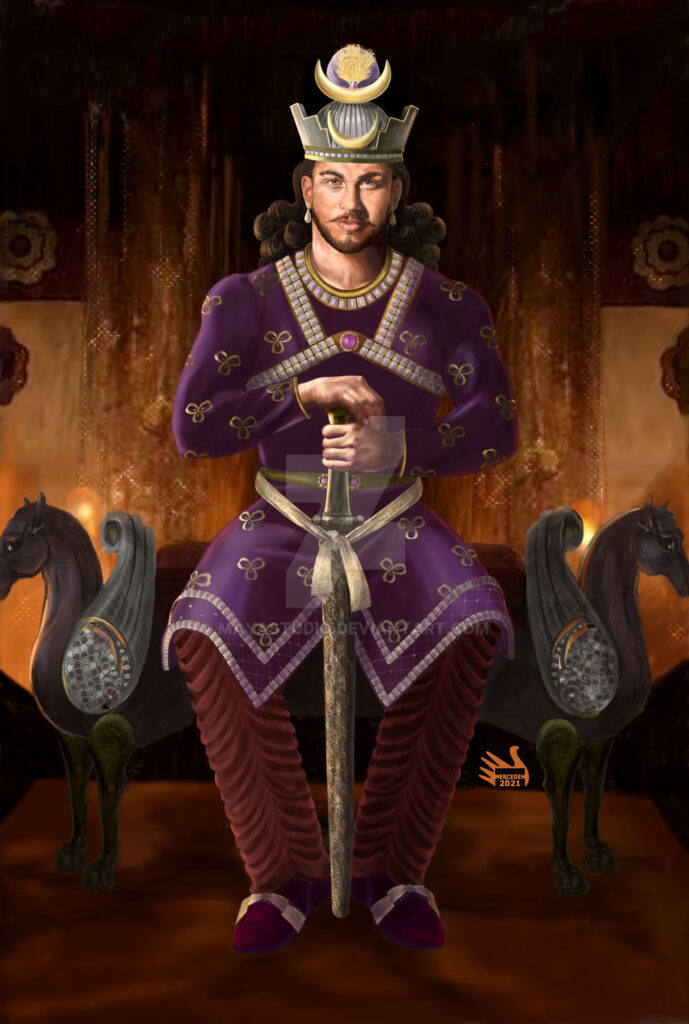
When he read the letter, Khusroe tore it up and ill-treated the envoy of the Prophet (r).
Then he wrote to Badhan, who was his governor in Yemen, to get the Prophet sent to him in
Ctesiphon. Badhan deputed Babwayh to tell the Prophet (r) what ChosroesII had written to
him and that he had come to take him to the King. But when Babwayh came to Medinah,
the Prophet (r) told him,
“God has given Sherveh power over his father and he has killed Chosroes II.”
The prophecy of the Prophet (r) came true exactly in the way foretold by him. Chosroes’
son Qubaz had by then deposed his father and seized the throne under the title of Sherveh.
Chosroes II was murdered in March 628 A.D. and with him ended the glory of four hundred
years old house of Sasanids. Sherveh enjoyed only six months of the fruits of his crime, and
in the space of four years the regal title was transferred to ten sovereigns, in quick succession, until, the exhausted monarchy was assumed by Yazdagird III.
He was the last Persian Emperor for he was soon to flee for his life before the advancing might of the Muslims. And thus was realized the Prophet’s prophecy within eight years of his pronouncement.
The Prophet (r) had also said: “No more Chosroes after Chosroes dies.” This portion of
the prediction also came to pass with the fall of Yazdagird III.
In a few years the whole of Iran lay at the feet of the Muslims. The bulk of the population
adopted Islam and there were born in Iran men with such lambent flame of intellect that
proved true, word by word, what the Prophet (r) had once remarked: “If knowledge were
to be found in pleiads, some of the sons of Persia would attain it.”
MUQAUQIS, RULER OF EGYPT
Al-Muqauqis did not accept Islam but treated the envoy with respect and honour and sent
some gifts to the Prophet (r), these included two slave-girls, one of whom was Maria who
gave birth to the Prophet’s (r) son Ibrahim, and a white mule which came to be known as
Daldal. Al-Muqauqis kept the letter in an ivory box, which is still preserved and can be seen
in the Topkapi Museum in Istanbul, Turkey.
NEGUS AL-ASHAM, KING OF ABYSSINIA
The Negus received the envoy of the Prophet (r) with great respect and showed him all
the honour he deserved, and accepted Islam. He wrote a letter to the Prophet (r):
I begin with the Name of Allah, Most Merciful, Most Gracious.
To Muhammed, the Messenger of Allah (r), from Negus Al-Asham ibn Abjar. Peace upon
you, O Prophet (r) of Allah, and Mercy and Blessing from Allah, beside Whom there is no
God, Who has guided me to Islam. I received your letter, O Messenger of Allah (r), in which
you mention the matter of Jesus and, by the Lord of Heaven and Earth, he is not one scrap
more than you say.
We know that with which you were sent to us and we have entertained your nephew and his companions. I testify that you are Allah’s Messenger, true and confirming those before you. I have given my allegiance to you and to your nephew and I have surrendered myself through him to the Lord of the Worlds. I have sent to you my son, Arha.
I have control only over myself and if you wish me to come to you, O Messenger of Allah
(r), I will do so. I bear witness that what you say is true. Peace upon you, O Messenger of
Allah.
The King seemed to have accepted Islam in his individual capacity but he could not convert
other people of his country this is confirmed by a hadeeth of Al-Bukhaari which saysthat the
Prophet said his funeral prayer in absentia in Madinah when he died. The second letter of
the Prophet (r) was sent to his successor, who probably did not respond favorably.
for prophets stories visit https://sunofislam.com/prophetsofgod/
for scientific miracles articles visit www.sunofislam.com
